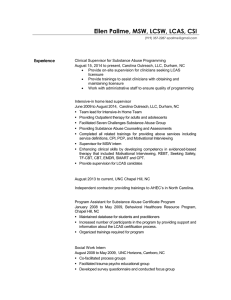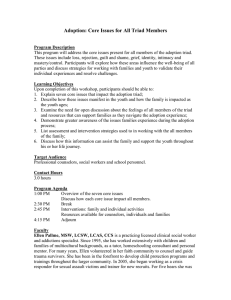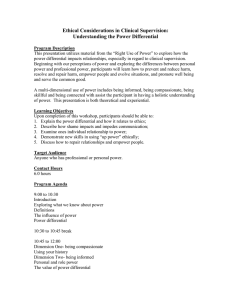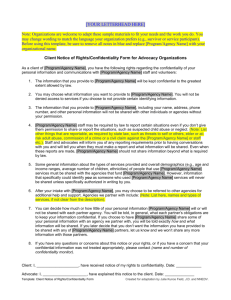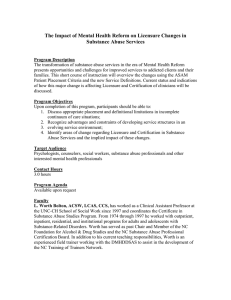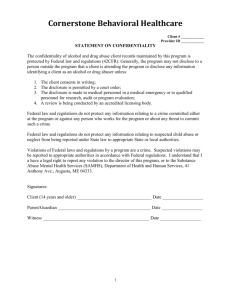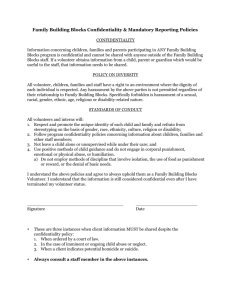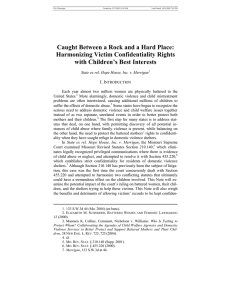Developing Competency with Substance Abuse Understanding the 12 Core Functions
advertisement
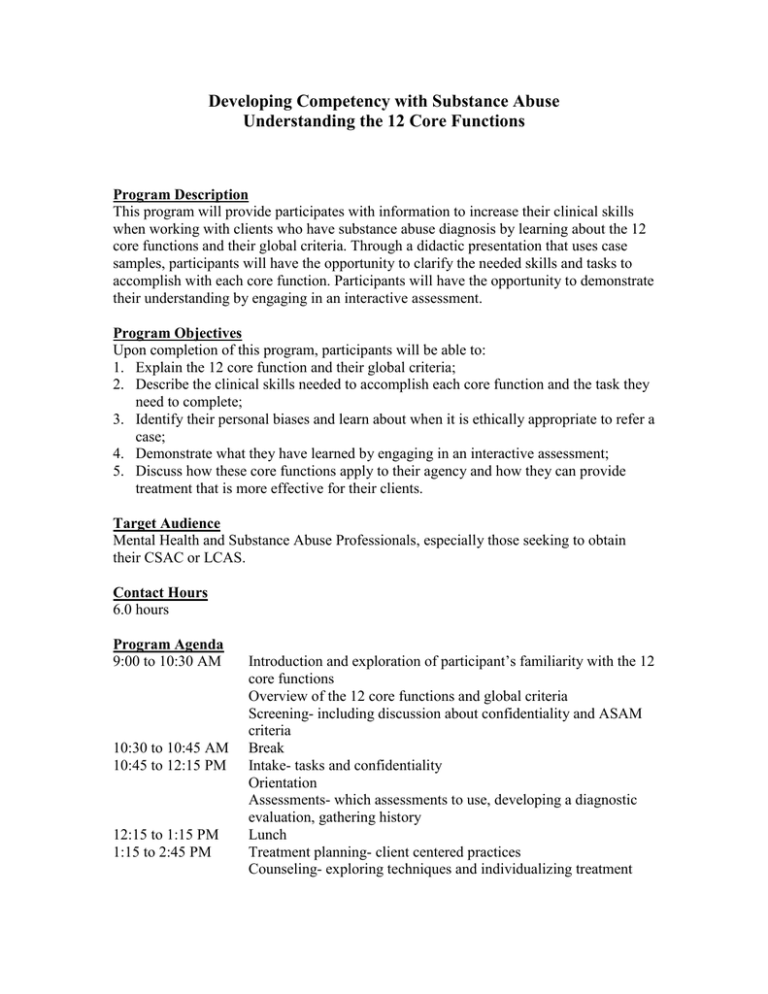
Developing Competency with Substance Abuse Understanding the 12 Core Functions Program Description This program will provide participates with information to increase their clinical skills when working with clients who have substance abuse diagnosis by learning about the 12 core functions and their global criteria. Through a didactic presentation that uses case samples, participants will have the opportunity to clarify the needed skills and tasks to accomplish with each core function. Participants will have the opportunity to demonstrate their understanding by engaging in an interactive assessment. Program Objectives Upon completion of this program, participants will be able to: 1. Explain the 12 core function and their global criteria; 2. Describe the clinical skills needed to accomplish each core function and the task they need to complete; 3. Identify their personal biases and learn about when it is ethically appropriate to refer a case; 4. Demonstrate what they have learned by engaging in an interactive assessment; 5. Discuss how these core functions apply to their agency and how they can provide treatment that is more effective for their clients. Target Audience Mental Health and Substance Abuse Professionals, especially those seeking to obtain their CSAC or LCAS. Contact Hours 6.0 hours Program Agenda 9:00 to 10:30 AM 10:30 to 10:45 AM 10:45 to 12:15 PM 12:15 to 1:15 PM 1:15 to 2:45 PM Introduction and exploration of participant’s familiarity with the 12 core functions Overview of the 12 core functions and global criteria Screening- including discussion about confidentiality and ASAM criteria Break Intake- tasks and confidentiality Orientation Assessments- which assessments to use, developing a diagnostic evaluation, gathering history Lunch Treatment planning- client centered practices Counseling- exploring techniques and individualizing treatment 2:45 to 3:00 PM 3:00 to 4:30 PM 4:30 PM Case management- understanding the importance of providing support in other domains Crisis Intervention- confidentiality and addressing safety. Break Client education- providing clients with relevant information Referrals- understanding client’s needs and connecting them to appropriate resources Report and record keeping- developing relevant documentation Consultation with other professionals about client treatment/services- applicable laws and providing client with the rationale to include others in their treatment. Questions and group activity to demonstrate knowledge. Adjourn Faculty Ellen Pallme, MSW, LCSW, LCAS, CCS is a practicing licensed clinical social worker and addictions specialist. Since 1995, she has worked extensively with children and families of multicultural backgrounds, as a tutor, homeschooling consultant and personal mentor. For many years, Ellen volunteered in her faith community to counsel and guide trauma survivors. She has been in the forefront to develop child protection programs and trainings throughout the larger community. In 2005, she began working as a crisis responder for sexual assault victims and trainer for new recruits. For five hears she was an intensive in-home team supervisor. Ellen is currently engaged as a supervisor for those seeking the LCAS credential and providing trainings to further education about substance abuse and co-occurring disorders. 2
